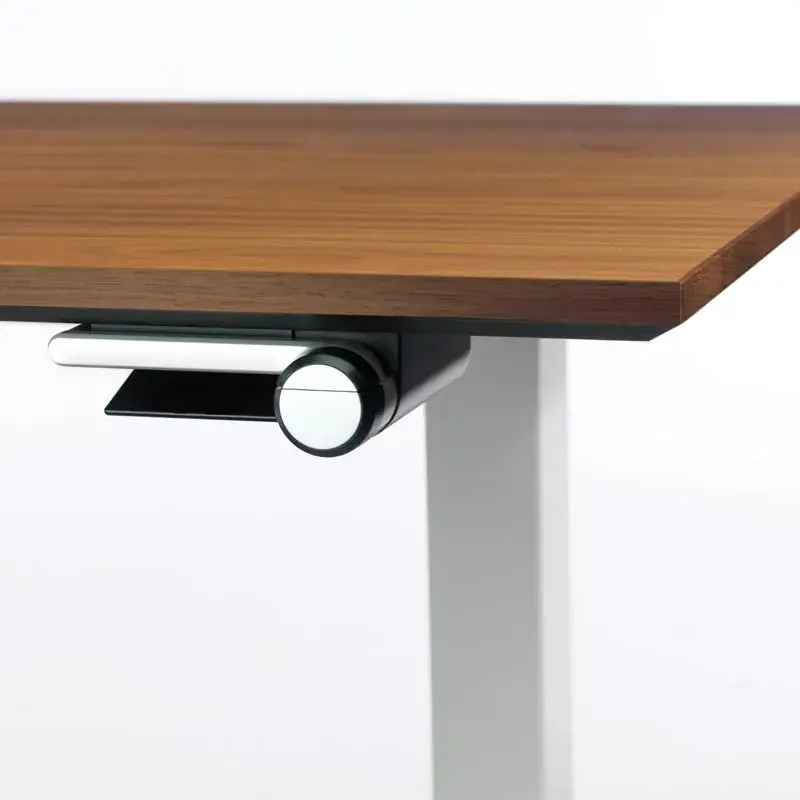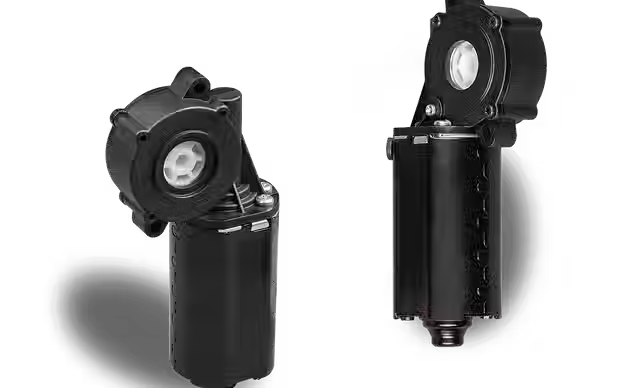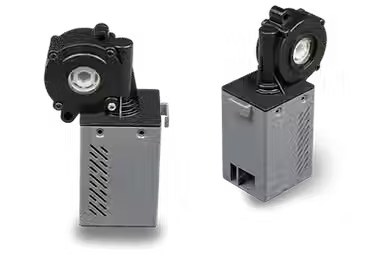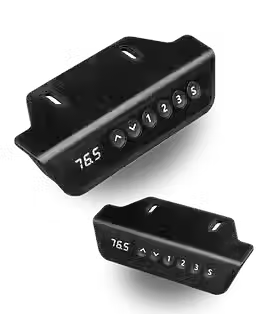A Starter Motor In Smart Car
- Xie
- Aug 1, 2025
- 8 min read
Understanding the Starter Motor for Smart Cars
The starter motor is an essential component in every Smart car, providing the necessary force to initiate the engine’s operation. Its functionality entails converting electrical energy into mechanical energy, allowing the engine to start seamlessly. Understanding this critical component not only helps in diagnosing issues but also aids in regular maintenance to ensure reliability and performance. Whether you’re a Smart car enthusiast or a new owner, grasping how the starter motor operates provides insight into your vehicle’s efficiency.

How the Starter Motor Functions
The starter motor in a Smart car operates by using a battery to supply a small current to the starter solenoid. This solenoid, in turn, engages the starter motor, which rotates the flywheel connected to the engine. It’s crucial for smooth starting since any defect can lead to starting problems. Notably, if the starter motor fails, you may hear clicking sounds or experience unresponsive ignition.
Signs of a Failing Starter Motor
Recognizing the symptoms of a bad starter motor can save you from unexpected delays. Common signs include:
Unusual noises: Clicks or grinding sounds when turning the key.
Unresponsive ignition: The engine doesn’t start or turns over very slowly.
Electrical issues: Dim lights or electrical functions failing.
Address these symptoms promptly to avoid more severe issues. Regular inspection of your starter motor in a Smart car can prevent these problems from escalating.
Symptoms | Potential Causes | Solutions |
No start | Dead battery | Charge or replace battery |
Clicking noise | Faulty solenoid | Replace solenoid |
Regular Maintenance Tips
To ensure the starter motor in your Smart car remains in peak condition, follow these essential tips:
Perform regular battery checks and maintenance.
Inspect electrical connections for corrosion or looseness.
Keep the starter motor clean and free from debris.
Maintaining a healthy starter motor will enhance your Smart car's longevity and performance, ensuring it is always ready to hit the road.
How the Starter Motor Works in Your Smart Car
The starter motor in your Smart Car is essential for starting the engine. When you turn the ignition key, this compact device receives electrical energy from the battery and converts it into mechanical energy. This process engages the engine, allowing your Smart Car to roar to life. Understanding how the starter motor works can help you address potential issues before they become major problems.

Components of the Starter Motor
The starter motor consists of several key components, including the armature, field coils, and the Solenoid. Each part plays a crucial role in ensuring smooth operation. The armature is responsible for generating a magnetic field, while the field coils help amplify this effect. The Solenoid acts like a relay, engaging the starter when you turn the key.
Common Issues with Starter Motors
Identifying problems with your Smart Car's starter motor is important. Signs of failure may include strange noises or the engine not turning over. Regular maintenance can help extend the life of your starter motor.
Battery issues
Loose wiring connections
Worn-out components
By addressing these issues promptly, you can avoid costly repairs down the line. Knowledge of the starter motor's functionality fosters smarter maintenance practices.
Component | Function |
Armature | Generates a magnetic field |
Field Coils | Enhances magnetic effect |
Solenoid | Engages the starter motor |
Conclusion on Starter Motor Functionality
Understanding the starter motor's significance in your Smart Car can save you time and money. Regular check-ups ensure your vehicle remains in excellent condition. Don't hesitate to have your starter motor inspected during routine maintenance.
Consult your mechanic
Keep your battery charged
Monitor electrical connections
“A well-maintained starter motor can extend the life of your Smart Car!”
Common Issues with Smart Car Starter Motors
When it comes to your smart car's functionality, the starter motor plays a crucial role. Many car owners experience issues that can arise with starter motors, especially in smart cars. Understanding these issues can help you address them promptly, keeping your vehicle running smoothly. Common troubles often stem from electrical problems, wear and tear, or battery issues, which can compromise the performance of your starter motor smart car. Identifying these early can save both time and money.

Signs of a Failing Starter Motor
One significant indication of a failing starter motor is when the car fails to crank. If you notice unusual clicking sounds or the engine turns over very slowly, your starter motor may be the culprit. Frequent battery replacements might also hint at deeper issues with the starter. Pay close attention to these symptoms to prevent more severe damage down the line.Here is our homepage
Troubleshooting Steps
To troubleshoot your smart car's starter motor issues, begin with checking the battery condition. A weak or dead battery can mimic starter motor problems. Next, inspect the wiring and connections for any visible damage. If these components seem fine, testing the starter motor directly is the best course of action.
Check battery voltage
Inspect wiring connections
Test the starter motor directly
Common Issues Table
Car won’t start | Dead battery | Replace battery |
Clicking sound | Faulty starter | Inspect or replace starter motor |
When to Seek Professional Help
If you’ve tried troubleshooting without success, it might be time to call in a professional. They can provide a thorough examination and ensure that your starter motor smart car is back on the road quickly.
After failed DIY solutions
For comprehensive inspections
The right maintenance can extend the life of your starter motor and enhance your smart car experience.
Replacing the Starter Motor in a Smart Car
When it comes to maintaining your Smart Car, one essential component is the starter motor. The starter motor in a Smart Car plays a crucial role in getting your vehicle up and running. If you find that your car isn’t starting or is making unusual noises, it might be time to replace the starter motor. Understanding how to effectively carry out this replacement can save you time and money.
If you have any questions or are interested in our products, feel free to contact us
Identifying the Problem
Before you replace the starter motor, it's important to confirm that it is the source of your issue. Signs of a faulty starter motor in a Smart Car include clicking noises or the engine not cranking at all. Conducting a thorough inspection and testing the electrical system can help pinpoint the problem.
Tools Needed for Replacement
To successfully replace the starter motor, you'll need a few tools on hand. Here’s a list of essential items:
Socket wrench set
Screwdrivers
Torque wrench
Safety gloves
Battery terminal wrench
Step | Description |
1 | Disconnect the battery. |
2 | Remove the starter motor bolts. |
3 | Disconnect wires from the old motor. |
4 | Install the new starter motor. |
5 | Reconnect the battery and test. |
Tips for Success
When replacing your Smart Car's starter motor, be sure to follow these helpful tips:
Double-check all connections before securing.
Make sure to use the correct starter motor model.
Consult your owner's manual for specific instructions.
“Replacing the starter motor in a Smart Car doesn’t have to be intimidating. By following the right steps and using the correct tools, you can have your car running smoothly in no time!”
Explore more insightful articles like this one – we have plenty more for you to discover here !
Signs of a Failing Starter Motor in a Smart Car
If your Smart Car is having trouble starting, the culprit might be the starter motor smart car component. This vital part plays a crucial role in getting your vehicle running smoothly. Early detection of issues can save you time and money, so it’s essential to know the signs of a failing starter motor.
Unusual Noises
One of the first indicators of starter motor issues is unusual noises when you attempt to start your Smart Car. You may hear clicking, grinding, or whirring sounds, which can suggest that the starter gears aren't engaging correctly. These sounds can be a serious red flag for trouble ahead.
Difficulty Starting the Car
If you notice that your Smart Car has a hard time starting, it might point to a failing starter motor. This could manifest as the engine cranking slowly or completely failing to turn over despite a charged battery. Avoiding these symptoms can help prevent more extensive damage.
Clicking noises when attempting to start
Engine cranking slowly
Complete failure to start
If you encounter these signs, it’s time to assess your starter motor smart car part. Regular checks can help maintain your vehicle's health.
Symptoms | Possible Causes |
Unusual Noises | Faulty starter gear |
Difficulty Starting | Weak battery or starter |
Professional Inspection
When in doubt, always consult a professional. They can accurately diagnose and fix any starter motor smart car issues, ensuring that your vehicle remains reliable.
Seek a mechanic for unusual sounds
Consider battery health checks
“Don’t ignore the signs; a failing starter motor could lead to bigger problems down the road.”
Tips for Maintaining Your Smart Car's Starter Motor
Your starter motor is crucial for the performance of your Smart Car. Keeping it in prime condition not only enhances your vehicle's reliability but can also save you from costly repairs down the line. Understanding how to maintain your starter motor will help ensure your Smart Car runs smoothly throughout its life. Regular maintenance can prevent issues such as failure to start, which can be frustrating and inconvenient.
Regular Inspections
Performing routine inspections of your starter motor smart car is essential. Look for any signs of wear or corrosion as you check the battery connections and cables. Ensure connections are tight and clean, as poor connections can impede performance and lead to starter issues. Any unusual noises when starting up should also prompt an immediate check-up with a qualified mechanic.
Keep the Battery Charged
A well-maintained battery supports your starter motor effectively. Ensure your Smart Car’s battery is charged and free of any corrosion that might affect performance. If your vehicle struggles to start, it’s wise to check the battery’s voltage. A weak battery can be a common cause of starter motor failures.
Check for engine warning lights regularly.
Follow your car’s maintenance schedule for oils and fluids.
Keep the starter motor clean and free from dirt.
Maintaining your Smart Car's starter motor is a straightforward process that can lead to many benefits.
Maintenance Task | Frequency |
Visual Inspection | Monthly |
Battery Check | Every 3 months |
Professional Tune-Up | Yearly |
Professional Help
If you encounter issues beyond your expertise, consult a professional mechanic who specializes in smart cars. A trained expert can diagnose and resolve potential problems with your starter motor smart car quickly and efficiently.
Seek licensed mechanics for complex issues.
Request warranty services if applicable.
"An ounce of prevention is worth a pound of cure." - Benjamin Franklin
FAQs About Starter Motors in Smart Cars
The starter motor in a Smart car is a crucial component that facilitates the ignition process. As the heart of the starting system, it engages the engine when the ignition key is turned. Understanding its functions, maintenance, and signs of failure can enhance your experience and longevity of your Smart car. Curious about your starter motor smart car? Here are some common queries addressed.
What are the signs of a failing starter motor?
Recognizing the symptoms of a failing starter motor is essential. Common signs include a clicking sound when you turn the key, dimming lights, or the engine not responding at all. It’s crucial to address these signs promptly, as they can indicate a problem with the starter motor smart car. Ignoring these symptoms can lead to a complete breakdown, putting your safety at risk.
How can I maintain my starter motor?
Proper maintenance of the starter motor can prevent premature failure. Regularly check electrical connections, ensure the battery is charged, and keep the motor clean from debris. A well-maintained starter motor smart car will perform optimally, ensuring you get the best driving experience possible.
Check wiring for corrosion
Inspect battery health
Keep motor clean
Staying on top of these maintenance tasks will go a long way in extending the life of your starter motor.
Symptoms | Action Needed |
Clicking Noise | Check battery |
Lights Dim | Inspect connections |
Engine No Start | Replace starter |
What is the typical lifespan of a starter motor?
The lifespan of a starter motor can vary, but generally, they last between 100,000 and 150,000 miles. Factors like driving conditions and maintenance will affect longevity. Keeping your starter motor smart car in excellent condition can help extend its lifespan, minimizing replacement costs.
Regularly check connections
Avoid short trips
Address issues immediately
A little preventive care goes a long way in ensuring your starter motor works flawlessly when you need it most.






Comments